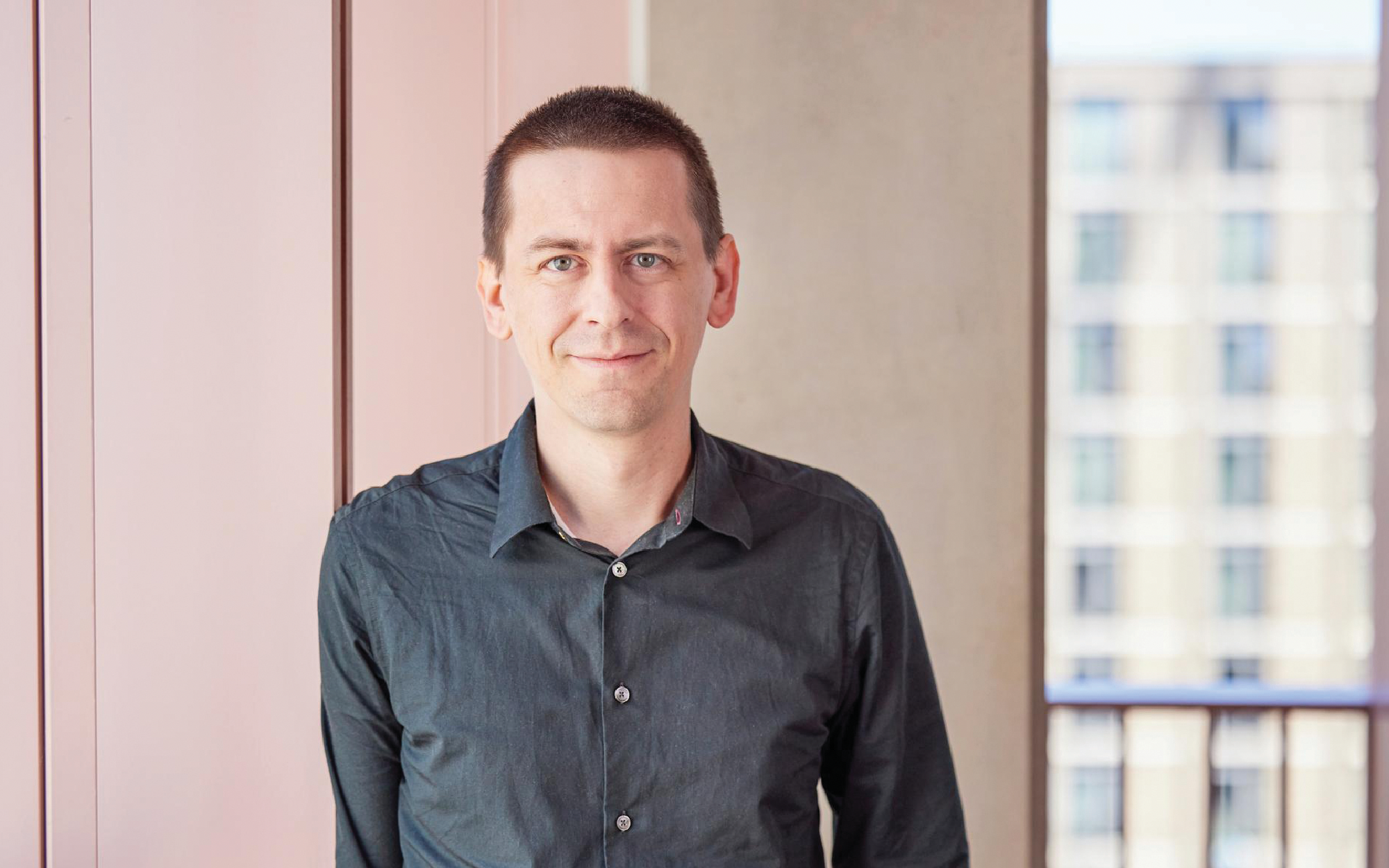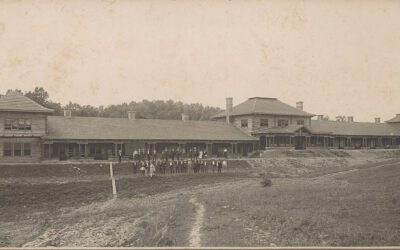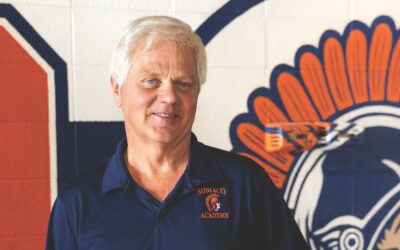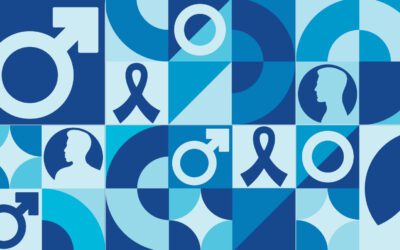Little Rock Native Wins Nobel Prize
John Jumper has no trouble explaining topics that leave most people bewildered. A 2003 graduate of Pulaski Academy in Little Rock, he discusses advanced technological concepts with a natural ease that makes them feel approachable.
The only thing the computational biologist and Google DeepMind AI project director struggles to put into words is the emotion he feels as a newly minted Nobel Prize winner in Chemistry.
The accomplishment, announced in October, is a milestone his teenage self could hardly have envisioned while growing up in Little Rock.
“When I was in high school, I kind of knew about [the Nobel Prize], but it almost didn’t register. It was so far off,” he says. “I do remember, though, that I loved science, especially physics, which I ended up studying in college. I would read about those incredible periods of discovery in physics—relativity and quantum mechanics—where groundbreaking ideas were worked out within something like a decade.
“I always kind of romanticized those moments and thought, wouldn’t it be great if I could make some contribution to a moment like that? And it feels like that now, making some contribution to a different moment in a different science.”
John received the award for his groundbreaking work in creating an artificial intelligence model capable of predicting the structure of virtually all identified proteins. He shares the honor with David Baker of the University of Washington in Seattle, who was recognized ‘for computational protein design,’ while the other Google DeepMind CEO Demis Hassabis, ‘for protein structure prediction,’ according to a news release by the Royal Swedish Academy of Sciences, which presents the award.
Google DeepMind’s breakthrough four years ago, AlphaFold2, revolutionized protein research by enabling scientists to predict the structures of nearly 200 million known proteins. This advancement has not only accelerated biological research but also sparked innovations in fields such as drug discovery, agriculture, and environmental science.
Since AlphaFold2’s groundbreaking breakthrough, the scientific community has been abuzz with its numerous applications. The technology has been utilized by over 2 million people across 190 countries to gain deeper insights into proteins—essential building blocks of life that also regulate and drive chemical reactions. For example, researchers have used AlphaFold2 to develop new antibiotics, study crop diseases, and investigate solutions for conditions like Alzheimer’s disease.
“What absolutely blew my mind is we released this, now three or four years ago, and we made it available to everyone. There’s been something like 30,000 different scientific papers that have cited AlphaFold in that time,” he says.
“About half of those papers just say, ‘AI has been great,’ and cite AlphaFold in a list of source material. The other half are papers that did some bit of science—they’re studying a plan, investigating certain things in bumblebees, or trying to figure out crop diseases and how they work. There are a hundred thousand things I could never do, things that take a lifetime of study just to ask the right questions. They’re using our tool to gain insights that advance their research. The extent to which it’s enabling others to make scientific discoveries is incredibly meaningful to me.”
John’s professional journey began in high school, where he had an overachieving academic mind, balanced by clubs and organizations, and was on the school soccer team. He earned degrees from some of the best universities on earth, earning his bachelor’s degree from Vanderbilt University in Nashville, a master’s degree from the University of Cambridge in England, and a doctorate from the University of Chicago.
Now living in London, England, he reflects that the process of scientific discovery is often far from straightforward.
“It’s intuition at times,” he says. “We imagine scientists—or at least I used to—as deeply thinking, writing out the correct equations, and then going on. But it’s really more intuitive. It’s like, ‘OK, we’re here. What ideas might work?’ Then you try ten things, and if nine out of ten fails, that’s probably the most successful machine learner I know.” By comparing this process to machine learning—an AI method of testing and refining ideas—Jumper highlights how both rely on iteration and learning from failure.
“You try to come up with ideas based on what you’ve done—what’s failed and what’s succeeded. Then you think, ‘Here are some reasonable ideas,’ and when one shows promise, you ask, ‘Can I make it better? Can I build on it?’ You’re constantly pulling on a thread, looking for the next one to tug on. That’s really how it works.”
The award is the ultimate accolade in the sciences, but John notes a counterintuitive aspect to achieving such a pinnacle so early in one’s career. While it brings increased demand for speeches and lectures, its immense prestige can sometimes overshadow or even hinder future innovation.
“The Nobel Prize actually cuts both ways on this,” he says. “There’s something called the Nobel Prize Effect, or Nobel-itis. You’re suddenly a Nobel Prize winner, and your views are suddenly more valid than they deserve; nobody tells you no, and then you do some incredibly ill-advised research project and do nothing significant for the rest of your career.
“There was a beautiful phrase from an article that said some scientists figure they can only do the big things. That they can never do small that become something significant later. For me, [the award] opens a lot of doors in terms of recognition and science policy—things like that. But more than anything, I think more than anything, big or small, I have to focus on doing the right things.”
John says he wants AlphaFold2 to show the world the beneficial uses of artificial intelligence — a revolutionary technology that has faced an image problem in recent years.
“I’ll first draw one type of distinction that’s important on the type of AI work we’re doing, and that’s AI working for science to address problems humans can’t,” he says. “It’s not about whether we can write an article as well as a human could write an article. It’s about whether we can predict something, things that take scientists and PhD student scientists years to do. We’re compressing years of their time into about five minutes.
“Scientists don’t just do one experiment, you know, that’s not their whole job. They’re doing this experiment to get the insight to do the next experiments and then write their paper. AlphaFold2 is really a partner in discovery for scientists. It’s so very difficult to do science anyway that anything that makes it easier is generally a good thing.”
Ultimately, John says he hopes being an Arkansan inspires other kids in the Natural State to dream big and aim high, especially in the science fields.
“I truly hope it encourages the talented kids in the state to think outward. Not necessarily geographically, but in the problems they work on,” he says. “I’ve traveled the world for science, but it’s also the case, especially post-pandemic, where it is getting more and more feasible to do great high-tech work from everywhere, including Arkansas.
“I also hope people gain a new appreciation for how science is actually done. Many imagine it as effortless for great scientists, but that’s far from the truth. It’s really about struggle, challenge, and, yes, fun too. Maybe one of the best predictors of success in science is to be able to persevere through uncertainty and challenges. I hope people come to see it as something achievable.”
Learn more about the Nobel Prize at nobelprize.org. Visit deepmind.google to discover more about this groundbreaking technology.
words DWAIN HEBDA // images Google DeepMind AI




